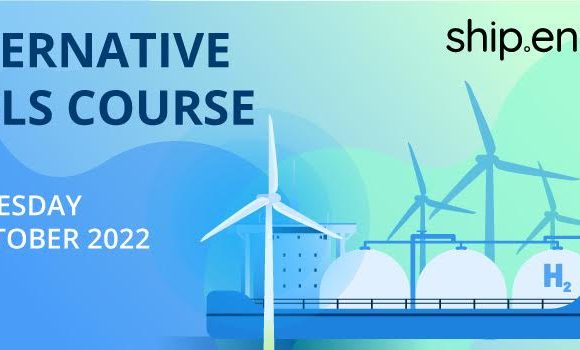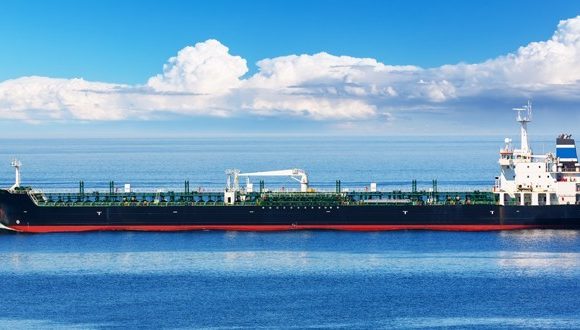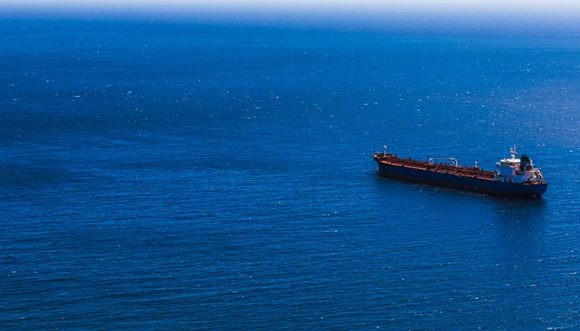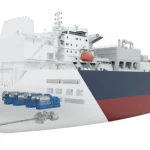BAR Technologies: Wind Propulsion More Vital Than Ever Amid Geopolitical Setbacks at IMO Talks

Portsmouth, UK – 9 April 2025– As reported by TradeWinds yesterday (8 April), the Trump administration has formally withdrawn the United States from climate policy negotiations at the International Maritime Organization (IMO), raising the stakes for international shipping’s decarbonisation efforts. BAR Technologies today issued a call for the global maritime sector to double down on credible, proven solutions such as wind propulsion, in light of the growing uncertainty around global emissions policy.
The withdrawal, confirmed via diplomatic communication to other IMO delegations, expressed strong opposition to the economic measures under discussion, including the proposed levy on greenhouse gas emissions and a mandatory fuel standard. The US statement described the IMO’s net zero ambitions as economically burdensome and reliant on what it characterised as “unproven fuels” while warning of potential retaliatory measures against any charges imposed on US-flagged vessels.
Reacting to these developments, BAR Technologies’ CEO John Cooper stressed that the industry must not allow political turbulence to derail progress towards shipping’s climate goals. He stated that wind propulsion remains an essential, deployable technology that can provide immediate and scalable emissions reductions, regardless of the regulatory headwinds.

John Cooper, CEO of BAR Technologies
John Cooper, CEO of BAR Technologies, said:
“This latest development only sharpens the industry’s need to prioritise solutions that are already available and proven in operation.”
“Wind propulsion is a tried and tested method of reducing fuel consumption and emissions. It is inherently zero-emission, freely available, and requires no external supply chain. With WindWings^® , we’ve demonstrated that wind-assisted propulsion solution is not a theoretical concept but a working solution that can deliver commercial and environmental benefits right now.”
BAR Technologies has long championed wind as a central pillar of shipping’s decarbonisation strategy, particularly as fuel markets remain volatile and regulatory alignment proves difficult. With vessels already operating with WindWings^® installed, the company believes the maritime sector has a clear opportunity to take ownership of its decarbonisation pathway, using technologies that are resilient to the kind of geopolitical shifts currently playing out on the global stage.
As the IMO’s Marine Environment Protection Committee continues its high-stakes negotiations this week in London, BAR Technologies urges policymakers and industry leaders alike to acknowledge the unique potential of wind propulsion, not only as a bridge to cleaner fuels but as a cornerstone of energy transition in its own right.
Wind remains the only energy source that can be captured and used directly onboard a ship without mining, refining, bunkering, or storing. In a time when consensus is difficult and timelines are tight, wind propulsion stands out as an immediate, inclusive and scalable solution.
WindWings^® are built on BAR Technologies’ patented three-element wing design, delivering 2.5 times more lift than traditional single-element configurations, reducing CO2 emissions by an average of 4.7t per day per wing This advanced design provides greater thrust and adaptability, enabling consistent performance across global trade routes. By unlocking the full potential of wind, a limitless, natural and zero-emission resource, WindWings^® elevate wind from a supplementary aid to a primary propulsion method, offering ship operators a practical and immediate pathway to reduce fossil fuel dependency while enhancing operational resilience.
Key Features of the WindWings®
Optimised thrust and fuel savings:The patented *three-element rigid wingsail with passive boundary layer control eliminates the need for suction fans or spinning mechanisms, reducing energy consumption.
Lightweight and easy integration:Weighing under 30 tonnes, these units require minimal deck reinforcement, making them ideal for *forecastle or side deck installation.
Foldable and non-foldable variants: Designed for maximum operational flexibility, the wings can be compacted for ease of navigation during pilotage and port operations.
Fully electric operation: The wings operate entirely on electric power, ensuring simplified installation and maintenance while maintaining high performance.
Fail-safe extreme weather resilience: A self-feathering mechanism allows the wings to withstand true wind speeds of up to 100 knots.
Turnkey solution: Comprehensive support from initial feasibility assessments to performance monitoring ensures seamless integration and operational efficiency.
About BAR Technologies
With an impressive heritage, having spun out of Great Britain’s former America’s Cup Team, BAR Technologies provides a wide range of design and engineering consultancy services across commercial ships, workboats, leisure boats, and engineered solutions. The company boasts a team of world-leading naval architects, optimisation specialists, fluid dynamists, and system engineers, all focused on delivering *next-generation maritime technology.
WindWings®
BAR Technologies patented three-element wing design is unique in the marketplace, delivering 2.5 times the lift of a single-element wing. Unlike conventional wind-assisted propulsion systems, WindWings® require no continuous power for suction fans or mechanical spinning. They automatically adjust camber and angle of attack for optimised efficiency, offering a proven, scalable solution for emissions reduction.
For further information on WindWings® feasibility assessments, vessel integration and performance monitoring, visit
AeroBridge®
The AeroBridge® represents a paradigm shift in the design of superstructures for commercial ships,offering significant fuel savings and emissions reductions via greatly improved aerodynamics.
Hull optimisation
State-of-the-art optimisation of newbuild vessel hullforms using AI-derived efficiency improvements to deliver double digit percentage fuel savings















